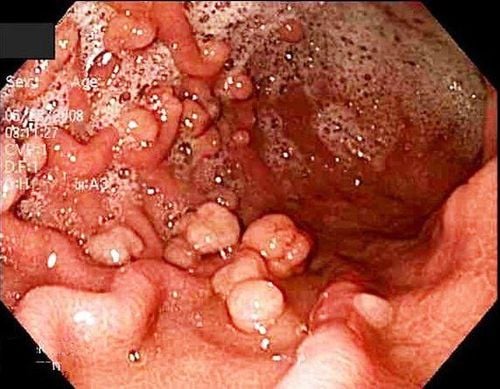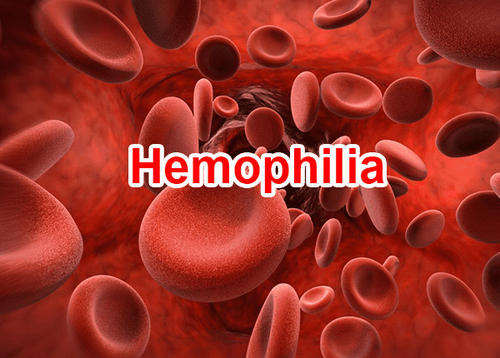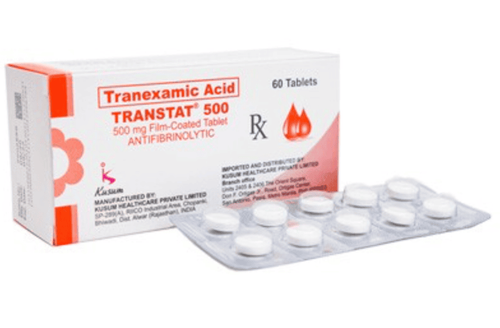This is an automatically translated article.
The article was professionally consulted with Master, Doctor Bui Tien Dat - Emergency Department - Vinmec Hai Phong International General Hospital.Although hemophilia is rare, it is very dangerous because it cannot be treated thoroughly, potentially causing disability and even early death for patients. Therefore, screening and early detection of the disease are important in reducing the danger of this disease.
1. What is hemophilia?
Hemophilia, also known as hemophilia, is a blood clotting disorder caused by a deficiency of clotting factors or an insufficient amount of clotting factors, most commonly factors VIII and IX. It is worth mentioning that the gene that produces these two clotting factors is located only on the X chromosome, so the disease is inherited.Males with XY chromosomes when receiving an X chromosome from a mother with hemophilia will manifest the disease. Females with XX chromosomes only show signs of the disease when both chromosomes are faulty (meaning that both parents carry the disease gene). If a female has only one X chromosome carrying the disease, she will not show the disease but can still pass the gene to her children. It is for this reason that hemophilia is almost exclusively seen in men. The rate of female disease is very low because the probability that both parents carry the disease gene is very small.
In addition to the group of patients with hereditary hemophilia, about 30% of cases are caused by genetic mutations and disease genes are also capable of being passed on to the next generation.
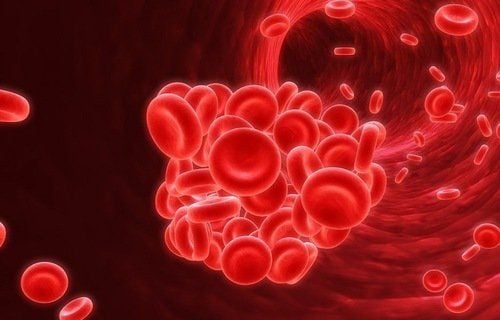
2. Is hemophilia dangerous?
Hemophilia is considered dangerous because:2.1 Disease caused by genetic causes Hemophilia is a genetic disease. If you don't pay attention to screening and prenatal screening, babies are born with a high risk of carrying disease genes or showing disease and can continue to pass it on to the next generation. Therefore, this is one of the warning criteria about the danger of this disease.
2.2 The rate of people being diagnosed and treated is not high According to estimates, there are over 6,200 people in Vietnam with hemophilia. However, in reality, only about 50% of patients are diagnosed and treated. This leads to the risk that patients with coagulopathy are prone to many unpredictable complications such as joint deformities, disability, etc. due to failure to detect and treat the disease early. Meanwhile, if detected early and treated aggressively, patients can completely live like normal people.
2.3 Many dangerous complications People with blood clotting disorders are prone to bleeding in many places on the body such as gums, gastrointestinal tract (causing gastrointestinal bleeding), bladder (causing blood in urine), in the muscles muscles,... The patient may see bruises in easy-to-touch places such as arms, legs, elbows, knee joints, ankles and shoulders. The most dangerous is bleeding in the joints. If not treated early by compensating for the deficiency of clotting factors, the patient's joints will become swollen, red, hot, painful, and then lead to subacute and chronic degenerative arthritis, causing joint deformity. .
In particular, people with hemophilia can experience uncontrolled bleeding, disability or even life-threatening damage from a very minor injury such as a severed hand.
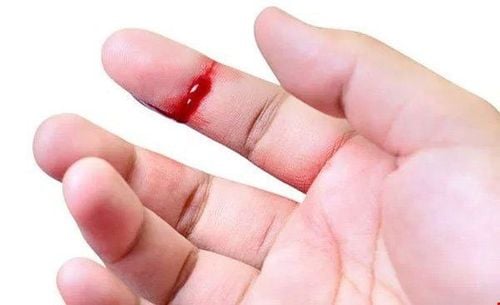
Without treatment, most hemophilia patients die before the age of 13. But with good care and treatment, sick people can have a life expectancy like normal people. However, in Vietnam, because it is often detected late and there is no treatment, the average life expectancy of patients with hemophilia is only 24 years.
3. How to stop bleeding for people with hemophilia
In patients with mild hemophilia, the bleeding is usually mild and does not last long. When the hand is cut, with light bleeding, the initial intervention can be by giving the patient rest, not exercising, applying ice outside the wound, applying pressure and elevating the wound site. After about 5-10 minutes, if the wound stops bleeding, there is no need to go to the hospital.In the case that the above intervention has been carried out but still cannot stop the bleeding, the patient should be taken to the hospital for timely treatment and treatment. Patients need to inform the doctor about the disease condition before tooth extraction, tonsillectomy, medication,...
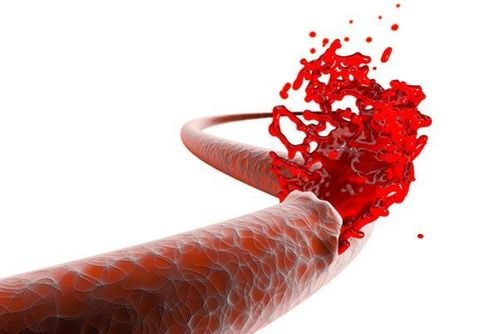
4. How to prevent and deal with hemophilia
Doctors recommend that if a patient has bleeding that is difficult to stop or has frequent bruising, joint pain, etc., they should go for a diagnosis of hemophilia. If the disease has been diagnosed, it should be checked every 6 months. In daily activities, patients need to avoid strong traumatic activities, do not acupuncture, do not inject intramuscularly, do not massage, pay attention to clean oral hygiene, have regular dental check-ups every 3-6 months, avoid Use medications that cause bleeding, such as aspirin, and get regular exercise to reduce the risk of bleeding.Family members carrying the hemophilia gene should also be counseled about the genetic mechanism of the disease. It is best to avoid marriage close to blood to reduce the risk of passing the disease gene to the child.
Hemophilia is an inherited blood disorder, so it is necessary to carry out genetic testing to diagnose the disease gene, to avoid the risk of disease for the next generations. In particular, because the disease can cause many dangerous complications such as deformed joints, disability or even death if not detected and treated promptly, patients should pay attention to strictly follow the treatment regimen of the doctor. doctor and be careful in daily activities and activities to avoid injury.
Please dial HOTLINE for more information or register for an appointment HERE. Download MyVinmec app to make appointments faster and to manage your bookings easily.
Reference source: National Institute of Hematology - Blood Transfusion




